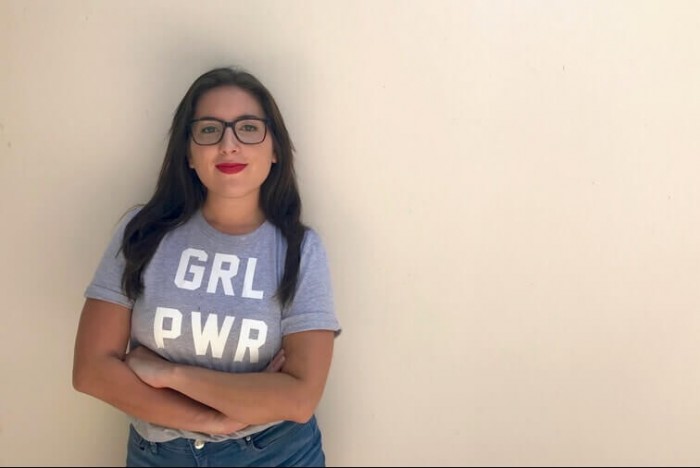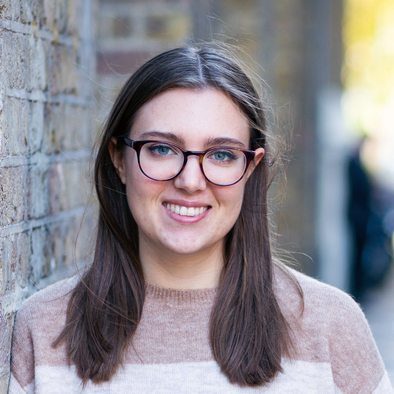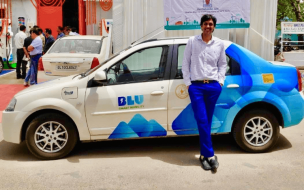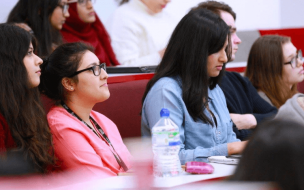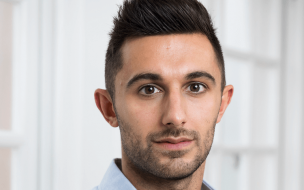“My original plan was to go to a PhD in clinical neuropsychology,” she explains. Alana worked at Boston Children’s Hospital for almost three years doing neuropsychological assessments and research and afterwards cemented her interest in the field with a Masters in Psychology, Neuroscience, and Education from the Harvard Graduate School of Education. It was also during this time that Alana attended her first hackathon, an event where entrepreneurs and coders work to solve problems in a short time frame, usually overnight. From then on, her career changed.
“I had an inkling neuroscience wasn’t really for me,” Alana admits. “I think the one thing I really enjoyed about my job was interacting with people.”
From the hackathon, Alana’s career took her back to her native Puerto Rico, where she helped build a technology startup looking at how AI and machine learning can be used to educate working professions until Hurricane Maria changed her career journey once again—“it was a big pivotal moment,” Alana recalls.
“I was living there when that happened so there was kind of a personal shift,” she says. “I was seeing all those people that didn’t have water or electricity, so I didn’t see a lot of meaning in what I was working on.
“I became really interested in this idea of what can entrepreneurship do for second cities, so not London, not New York, not places with a lot of resources and money, places where you really only have people and a purpose.”
It was then that Alana decided to take her skills in product design and entrepreneurship to triple-accredited Aston Business School in Birmingham, UK—even turning down a job offer in London in the process.
“I had already applied and gotten into Aston, and I had already been on campus and met with the dean,” she explains. “The job in London would have just been a job, but I felt like this had more purpose.”
A close-knit community
Aston University itself is on the smaller side, with only 12,000 students enrolled, and Aston Business School prides itself on its community atmosphere.
“Personally, I like smaller institutions,” says Alana, “which makes sense, cause I like startups!
“I feel like at a smaller school you can do more, and there’s more personalized attention if you look for it.”
Despite its small size, Alana says she’s had the chance to meet a variety of people since starting the program.
“My favourite part so far is actually the people,” she says. “There’s 17 of us in total but they’re from all over the world.”
She’s also formed a bond with her dissertation supervisor, another Harvard alum. For Alana, it’s the community that makes Aston Business School different to other schools in the UK.
“At Aston, if you have an idea and you do the work of reaching out to people, there will be people to help you,” she says. “I haven’t necessarily seen that at other institutions.”
Career prospects
With such a varied background, where does Alana see her entrepreneurship degree taking her?
“Maybe I’m not the most traditional candidate for an entrepreneurship degree because I have started a company already!” Alana says. “The degree is definitely a hybrid of different things—the real crux of it is finding that personal connection.”
On the Master in Entrepreneurship at Aston Business School, students have a wide range of modules to choose from, such as international business, innovation, and finance, as well as consulting.
Despite the new career path, and an assertion that she “definitely made the right choice!” going into entrepreneurship, Alana hasn’t quite escaped her background in psychology.
“At the moment I’m head of marketing for TEDx at Aston University,” she explains. “That’s all psychology and consumer behaviour so I’ve just learned a new way to use all the things I’ve learned in undergrad in a more relevant way.”


